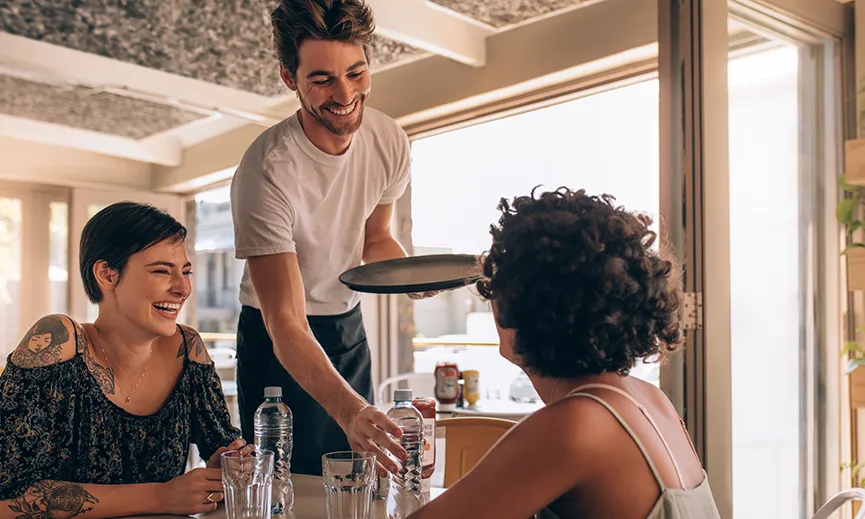
Loyalty in a cost-of-living crisis
Pubs with rooms are on the rise. With more than 5,700 pubs with rooms across the UK —equating to around 50,000 guest rooms—and 41% of operators planning to expand their offering, it’s a market full of momentum. Pubs with rooms are perfectly placed to meet the needs of guests who want the charm, informality, and character of an Airbnb, but with the service standards, food, and drink experience only a pub can offer. In the article, Are pubs with rooms the new boutique hotels?, The Caterer recently reported on the growing trend of consumers turning away from budget hotel chains to mid-market pub groups with rooms.
With the right technology in place, pub operators have a unique opportunity to capitalise on this trend—streamlining operations, improving visibility, and delivering exceptional guest experiences from booking to checkout.
One of the most important aspects of Zonal PMS is its ability to enhance property visibility online in the market by integrating directly with online travel agents as well as your own website. A joined-up tech stack which feeds directly into the OTAs, saves a lot of time and makes selling your rooms significantly easier —with real-time availability making it possible to sell rooms right up to the last minute.
The technology also allows you to track customer data, ensuring that the guest journey can be followed from start to finish. This level of insight provides you with valuable information to help tailor and deliver great service to guests.
We recently spoke to some of the Provenance Collection team to find out what benefits integrated technology has had to their business.
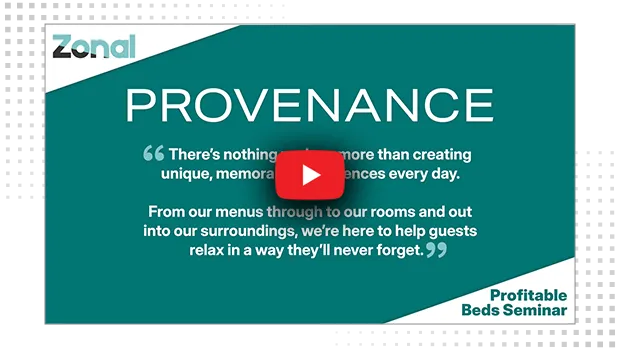
With Zonal PMS teams are freed up to focus spending more time with customers on creating great hospitality experiences for guests, where staff can be out on the floor engaging with customers, instead of spending time on admin. It’s not so much about eliminating tasks, but instead about freeing up staff to do what they really care about – creating great experiences.
Zonal PMS enables pub operators to efficiently manage bedroom booking rates, especially across multiple sites. What could take up to 12–15 hours per week can now be handled in just a couple of hours with Zonal PMS —freeing up valuable time.
Utilising one platform to manage your accommodation across your whole estate means that staff training is centralised across all sites, and service is consistent because staff are using identical technology across locations, processes such as booking, check-in, check-out, and billing are streamlined—ensuring accuracy and delivering a seamless guest experience.
We understand how frustrating it can be for guests to navigate a disjointed booking process—reserving a room, only to have to return to the website and click through again if they want to book a table as well. With the right technology in place, such as a table booking system that integrates natively with your PMS, guests can reserve a table in the pub’s restaurant at the same time they book their room. What’s more you can offer guests the opportunity to purchase optional extras whilst booking their stay and include optional extras such as Champagne, Flowers, Early Check-Ins and Late Check-outs. This not only streamlines the experience but also creates valuable upselling opportunities for food and drink, reduces admin for your team, and enhances the overall guest journey.
Zonal’s loyalty platform can also play a role here in helping venues encourage and reward repeat visits, where points can be collected and offers can be distributed through the platform. For example, hotel guests who stay regularly may earn points for each visit, and as it builds up, they’ll eventually have enough for a for a free stay.
In addition to rewarding loyal guests and driving repeat visits, an integration with Zonal’s loyalty platform can also help you boost guest spend during their visit and boost engagement with both the accommodation and F&B sides of your business. Loyalty rewards accrued from a guest booking a stay with you can be redeemed in your restaurant or bar, and vice versa, with any loyalty balance built from guests eating and drinking in your pub able to be used to pay towards their room during a stay.
With rising costs, increasing regulatory changes and evolving customer expectations, pubs face mounting pressure to boost revenue and increase profitability in 2025. For Lisini Pub Company, a beloved family-run operator with four vibrant locations across Lanarkshire, innovation has been the key to success.
Lisini has a long history of delivering outstanding experiences for its guests, firmly establishing itself as one of the biggest and most successful names in Scottish hospitality. Having become a beacon for the finest food, service, entertainment, events and functions in Lanarkshire – the team have enhanced their offering by introducing guest rooms at their sites. Since launching this brilliant accommodation, the company has seen a marked increase in footfall, stronger brand loyalty, and a rise in revenue.

We spoke with Siobhan Edwards, Director of Lisini Pub Company, to discover how they have transformed their business through innovation, helping them to thrive in challenging times.
What started in 1969 as a single pub founded by my parents, Harry and Kathleen Hood, has evolved into one of Scotland’s most successful and respected family-run hospitality businesses. Today, we are proud to operate five locations, offering 30 hotel rooms across our estate, and generating a turnover of £15.5 million.
Based in Lanarkshire, just outside of Glasgow, our venues are located within a short drive of each other. Each venue offers its own unique menu and atmosphere, catering to a range of tastes, yet all share the same strong, community-focused, family-run ethos.
Our dedicated team, many of whom have been with us for over a decade, help create that welcoming, family-friendly atmosphere that our customers love. From food and drinks to memorable events, our venues are the perfect place to celebrate life’s important moments — whether it’s a wedding, birthday, christening, or funeral. These connections span generations, and we’re honoured to be a part of them.
We cater to a diverse range of guests, with each venue offering something for everyone. Take Angels, for instance – a mix of bar, nightclub, and dining destination. It’s a favourite for a younger demographic, influencers, and travellers seeking great food, vibrant nights, and a memorable atmosphere.
travellers seeking great food, vibrant nights, and a memorable atmosphere.
However, the majority of our guests are local and community-oriented, with our venues offering tailored experiences that make everyone feel at home. From classic British pub fare like hearty pies and fish & chips to fresh, customer-inspired dishes, we’re always evolving to meet our guests’ tastes. With a strong family legacy and a reputation built on integrity, we’ve earned the loyalty of customers who return time and time again.
When it comes to driving revenue, offering rooms at your pub isn’t just about providing somewhere to sleep – it’s about enhancing your entire food and beverage experience too.
By adding rooms to our pubs, we’ve unlocked the opportunity to host a calendar full of exciting events, significantly boosting our bottom line. We’ve found that guests attending these events are more likely to extend their stay, ordering additional food, drinks, and treats to fully enjoy the experience.
In fact, 90% of our overnight guests tend to dine and drink on-site, creating more opportunities for additional sales and a higher spend per customer. Offering tailored packages that combine event tickets, food, drinks, and overnight stays has created multiple revenue touchpoints, ensuring our guests have a memorable experience while driving sales across the board.
Moreover, offering rooms can encourage repeat visits and foster loyalty. It may sound simple, but we’ve noticed that when guests have a positive experience at our venues, they’re more likely to return and recommend us to others. This word-of-mouth marketing, combined with the opportunity to attract bookings during peak seasons, helps not just fill rooms, but also bring in more customers to the restaurant and bar, leading to increased revenue for the business.
We are always looking at evolution. For example, we had a very small beer garden of around 30sqm in Angels Hotel, and we have invested £250k to transform this into The Vault – a social events space which will offer private karaoke, interactive darts and its own bar. For us, it’s about looking at dead spaces and dead revenue, and doing something about it, using the space we have to enhance our offering and give customers another reason to visit – whether that’s for an experience in The Vault or an overnight stay in our growing number of rooms.
Running a busy group of pubs is no easy task, but Zonal’s technology has made things much easier for us. It’s not just about working smarter; it’s about working more efficiently.
Implementing a fully integrated Property Management System (PMS) has been a game changer. It has streamlined everything from reservations and guest check-ins to sales forecasting and business performance analysis. What truly sets it apart, however, is its seamless integration with our EPoS software, stock-take system, and booking platform. Everything works in harmony, eliminating the need to spend hours reconciling orders or collecting data from separate systems. This allows our team to focus on what matters most – providing an exceptional experience for our guests.
One of the things we really appreciate about Zonal is how everything is tailored to fit our unique needs. Rather than taking a ‘one-size-fits-all’ approach, Zonal allows us to select the most effective technology for our specific needs. We’ve been able to bring everything into one place, and that’s made a huge difference in streamlining our operations and boosting efficiency.
At Lisini, we’re all about putting the customer at the heart of everything we do. That shared commitment to enhancing the customer journey has made our partnership with Zonal a perfect fit.
“We live and breathe pubs, and our technology has been serving the UK pub industry for decades. A well-integrated PMS system in pubs not only streamlines operations but also opens new avenues for revenue, from personalised guest experiences to smarter resource management. By leveraging data, pubs can diversify their offerings and unlock untapped potential, ensuring consistent growth and a competitive edge – something which is more important than ever in a dynamic market.”

Tim Chapman
Sales Director at Zonal

Loyalty in a cost-of-living crisis
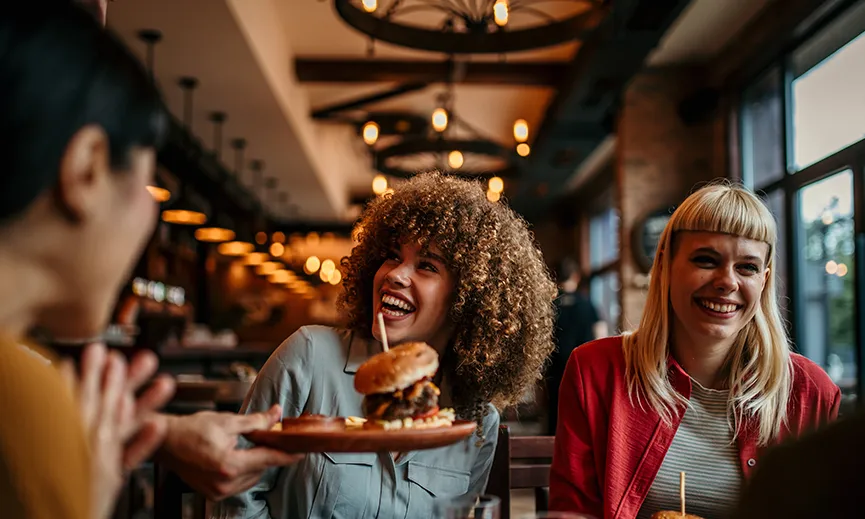
The evolution of loyalty schemes in hospitality
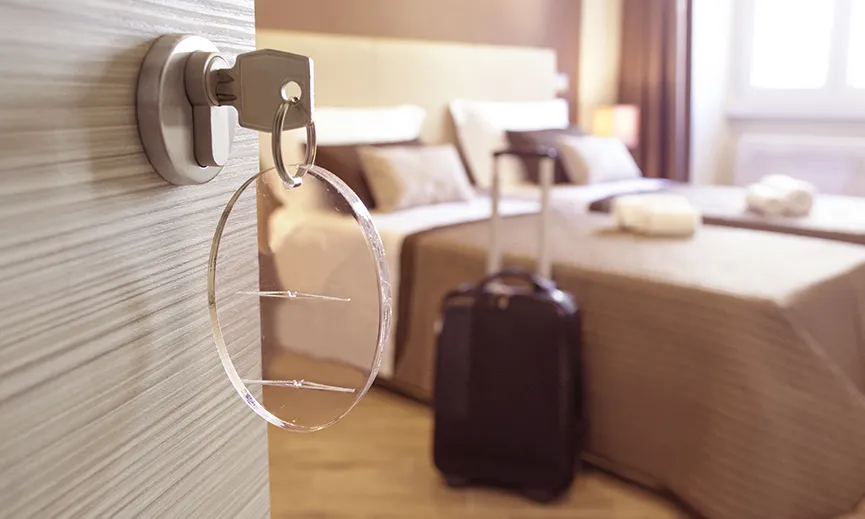
Seamless stays and smooth operations: The impact of Zonal PMS on pub accommodation
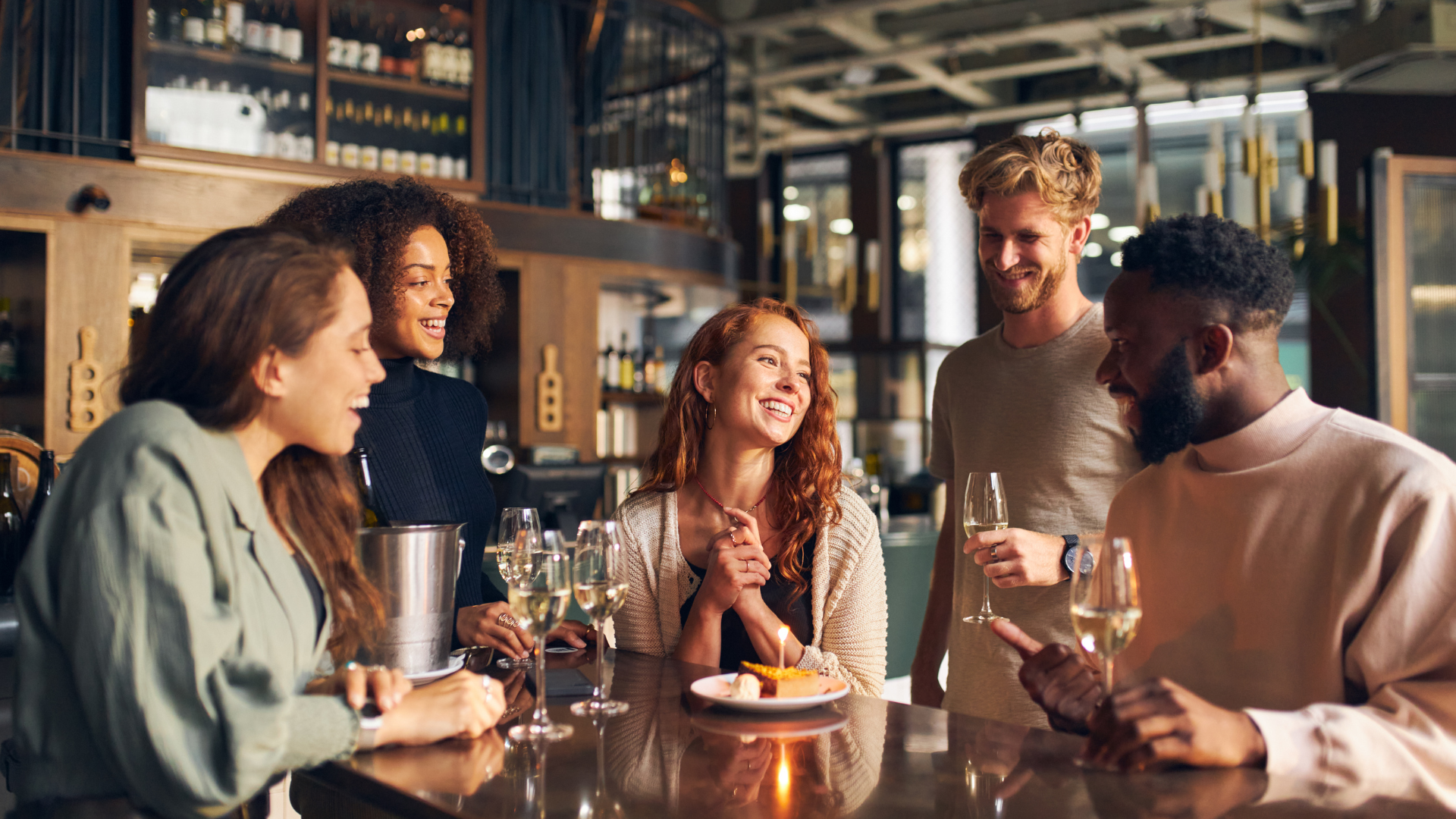
Does customer loyalty even exist?

What is loyalty?

The top 5 latest Order & Pay features to help you reduce overhead and boost efficiency

GO Technology: Hotels and consumers – Guest expectations and how to meet them

Podcast: The future of hotel management

10,000 job-ready recruits set to boost hospitality industry
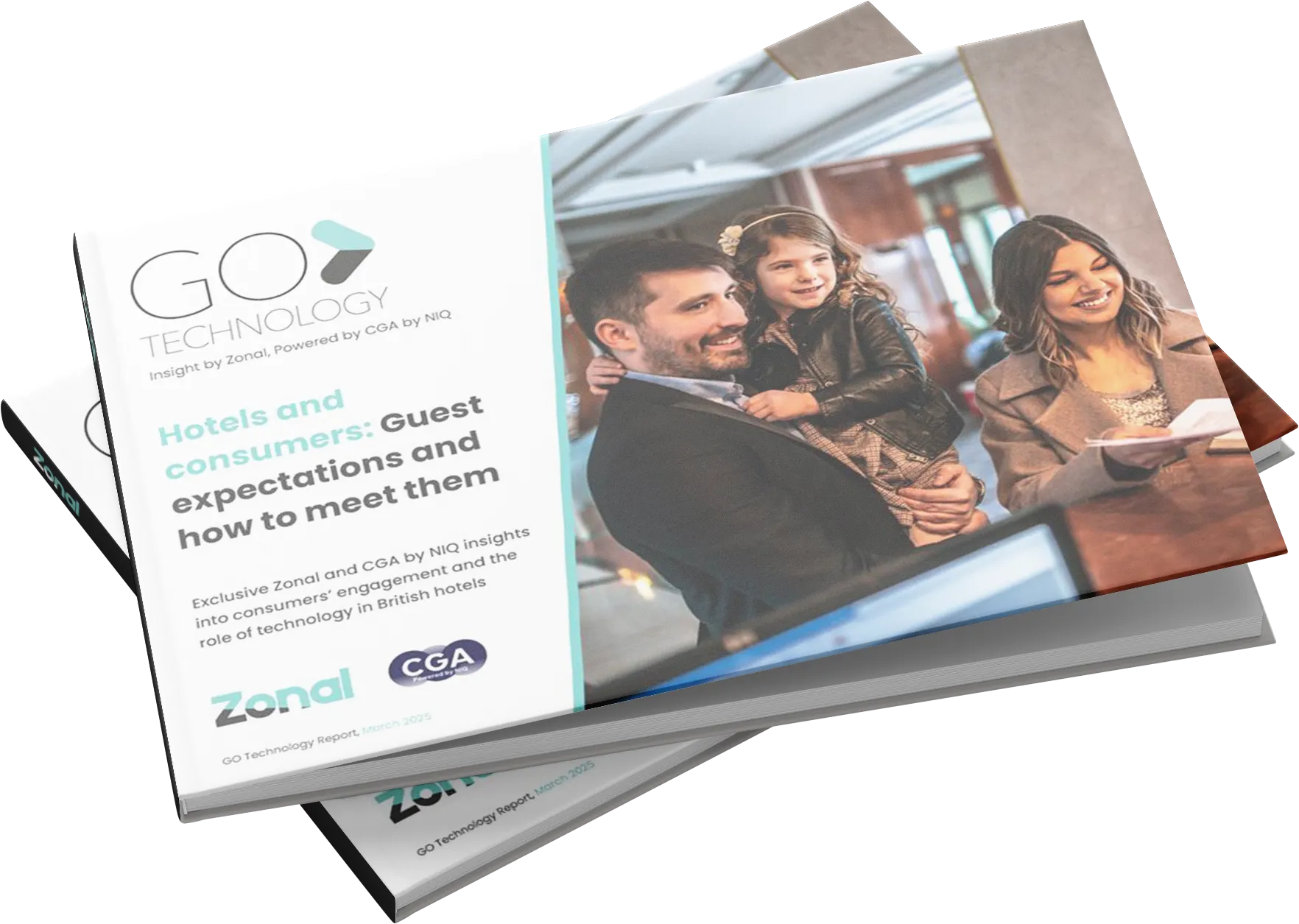
Both domestically and abroad, the demand for accommodation remains high, with 78% of consumers having stayed in a hotel in 2024.
But guests’ engagement with hotels is evolving. With more discovery tools at their disposal than ever, and plenty of choice when it comes to the type of accommodation they want to stay in, it’s vital for hoteliers and operators to understand guest behaviour to stay ahead of the game.
This report, produced in partnership with CGA by NIQ, surveyed over 3,000 British consumers to provide a deep dive into what it is guests are looking for when booking a stay in a hotel; including how often, and for what reasons, guests are staying in UK hotels, their engagement with F&B during their stay, and the factors that influence their choice of hotel when booking a stay.


GO Technology: Hotels and consumers – Guest expectations and how to meet them
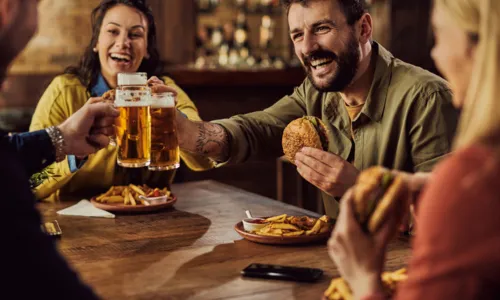
GO Technology: Consumers and hospitality: 2024 in review
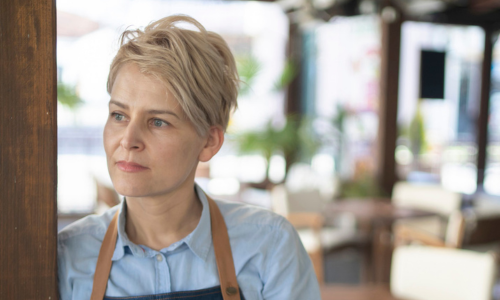
GO Technology: The truth behind no-shows

GO Technology: Brand loyalty in hospitality

GO Technology: Fixing people’s hospitality bugbears

GO Technology: The value of hospitality – Exploring consumer insights and perceptions

Influence, loyalty and technology: Key guest trends from 2023
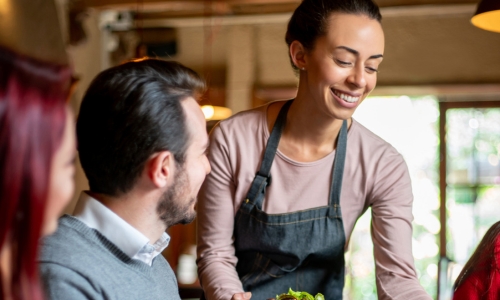
GO Technology: The New Loyalty Landscape – How the cost-of-living crisis impacts hospitality
Nottingham, Edinburgh and Liverpool have become the latest UK cities to announce the implementation of a new type of ‘tourist tax’ on hotel stays. They join Manchester which already has a £1 per room, per night charge in place for visitors, on top of their bill.
The schemes are growing in popularity after success across Europe in cities such as Paris, Bruges and Barcelona, which allow local authorities to implement a ‘transient visitor levy’ on short-stay travellers.
But there is a catch; local authorities in England are not actually legally allowed to tax tourists.
British cities like Manchester have introduced a legal workaround to bring in a levy for tourists, by incorporating accommodation into their existing Business Improvement District (BIDs) Zones and applying the same levy as they do to other businesses that fall within it. So, from April 2023, 78 accommodations in Manchester were included in its BID zone, and guests now pay to cover the new charges imposed on those buildings.
This levy raised more than £2.8million in its first year, creating much-needed funds for new initiatives to boost tourism and support the hospitality industry in the city.
Seeing this success, Nottingham and Liverpool are following suit in England, with similar BID charges set to start from summer 2026, earmarked to help raise funds to improve their visitor economies. The London Mayor, Sadiq Khan, is also reported to be looking into a new levy for the capital, after seeing Manchester’s success.
In Scotland, however, the Government has taken this one step further, by voting in favour of legalising a 5% enforced tourist tax on overnight stays in popular areas like Edinburgh, Glasgow and the Highlands, capped at five nights, starting in July 2026.
In Wales, the government has also voted in favour of an optional tourist tax to raise a forecast £33 million annually, which each of its 22 councils can choose to introduce from 2027.
Despite the plans to reinvigorate the UK tourism industry, these new levies have not come without a fair share of controversy in recent years.
Bournemouth saw plans for a new tourist tax thrown out by the Secretary of State for Housing, Communities and Local Government last summer after 42 hotels petitioned against it. The hotels from across Bournemouth, Christchurch and Poole objected to the proposed £2 per room, per night tax, claiming it would deter guests from staying due to the increasing costs, losing them vital business income.
UKHospitality has recently backed these claims, calling the tourist tax ‘damaging’ to the hospitality industry because it could make the UK less attractive to visitors.
Although there is opposition to levies in the UK, there is clear financial benefit for cities that impose them.
For example, the Edinburgh levy is set to raise £50 million per year, to fund cleaner streets, quicker removal of graffiti, environmental improvements, more attractive spaces and better transport connections; all in aid of further boosting tourism to the city.
In Liverpool, the newly proposed levy is predicted to raise £6.7 million over the first two years, which is set for investment in hospitality, events and cultural venues.
Hoteliers are understandably wary of new levies pushing prices up for visitors and the impact this will have on their booking numbers and ultimately, profits.
Despite this, the latest research has predicted that a country-wide, £1.25 nightly charge per person could raise £560 million for the economy, and the demand for tourist tax legislation seems to be growing from government officials.
This is set to be a hot topic for hoteliers, and something for hospitality bosses to consider when budget planning over the coming months.
UKHospitality has announced a brand-new partnership with the government to provide over 16s with sector-based Work Academy Programmes (SWAPs) to boost employment in the hospitality industry.
The scheme, which was announced last month, will provide applicants with the skills they need to secure employment within hotels, restaurants, bars, pubs and leisure venues.
The partnership comes as UKHospitality recently reported a shocking 48% increase in hospitality job vacancies in 2024 compared to pre-pandemic levels, revealing the desperate need for up to 90,000 skilled workers in the industry.
The sector-based programme will provide industry-specific training for applicants in 26 locations around the UK, with the goal of getting 10,000 young people job-ready by next year. UKHospitality aims to boost productivity in the industry, spur economic growth and provide people with stable, engaging and fulfilling careers.
Alongside SWAPs, The Department of Education has also made key changes to apprenticeship schemes to cut red tape and make learning more flexible for young people. This includes letting businesses decide whether each applicant needs to complete Maths and English qualifications at Level 2 to pass their chosen training scheme.
These hospitality sector-based Work Academy Programmes are set to bring thousands of high-quality recruits into the hotel industry. Through the Government’s Hospitality Skills Passports, workers will gain skills that are applicable across different roles in hospitality, from F&B provision and service to customer service and front-of-house roles. This means that hospitality businesses will gain staff with sought-after transferrable skills to boost productivity and provide great customer service across all departments.
This extra recruitment to the hospitality sector is forecast to support the industry to grow, boosting further investment and expanding profits for hoteliers and other business owners.
UKHospitality will begin rolling out this programme alongside the Department for Education from April 2025, in partnership with job centres, colleges and training centres across the country. This will make the scheme accessible for both applicants and hospitality businesses seeking new recruits.
As the demand for accommodation grows in the UK, the latest research shows investment activity will surpass 2019 levels this year.
The latest Savills report shows a surge of international interest with 3,000 new rooms in London alone. This new confidence from overseas investors coincides with the recovery of international travel to the UK since 2023, particularly from Chinese and American tourists.
To support the demand for rooms, some cities such as London have enforced supportive planning policies to convert unused spaces, such as offices, into micro and aparthotels. These new accommodations are often located in central business districts, perfect for visitors travelling for work. London has seen £400 million worth of investment in these schemes in the past 12 months, with this market forecast to grow rapidly in 2025.
Forbes recently reported that travel spending is at its highest levels since 1960, with Gen Z and Millennials leading the shift towards ‘experience travel’, creating a boom in tourism centred around specific events and experiences.
From concerts to sporting events, investment in hotels near arenas and stadiums is growing, as the younger generations prioritise a more integrated hospitality experience. The ‘Taylor Swift effect’ is a perfect example of the influence of significant events on the hotel industry, with sales at hospitality venues within three miles of Wembley Stadium averaging £1 million per night and hotel occupancy reaching 94%, during her five-night residency last year.
Luxury hotels have seen the biggest levels of investment since 2023, and the sector is forecast to grow even further this year. With bespoke culinary experiences, large private aparthotels and wellness and health retreats gaining huge traction, investment in luxury hotels that offer special experiences is booming.
This growth also benefits visitors with smaller budgets, and research shows that more affordable stays at off-peak times are growing in popularity, with mid-week occupancy rates improving significantly in the past year.
Hoteliers will be well aware of the significant pain points for the industry this year, from a rise in minimum wage and tax cost pressures to chronic staff shortages. Creativity and innovation have never been more important for hotels to gain investment to thrive.
Despite these challenges, the outlook is positive, with over £5.75 billion worth of investment in hotels in 2024. With a 5% increase in inbound tourism predicted this year, it has never been more important for hotels to embrace technological change to tap into new markets and reap the benefits of these exciting levels of growth.
https://premierconstructionnews.com/2025/01/21/uk-hotel-investment-reaches-five-year-highs/
https://www.savills.co.uk/blog/article/371000/commercial-property/what-s-here-to-stay-in-2025–trends-in-the-hotel-sector.aspx
https://www.savills.co.uk/insight-and-opinion/savills-news/370917/savills–uk-hotel-investment-reaches-%C2%A35.75-billion-in-2024–doubling-2023-levels
https://www.visitbritain.org/news-and-media/industry-news-and-press-releases/visitbritain-publishes-inbound-tourism-forecast-0
After a rocky few years for the hospitality industry, Visit Britain’s latest forecast report provides some welcomed optimism for British hoteliers. The 2025 inbound tourism forecast shows a 5% increase in predicted visits to the UK this year – with a record 43.3 million tourists set to travel here.
As the tourism industry continues to grow, the UK government has unveiled ambitions to reach 50 million visitors by 2030. So, how can hotels best prepare for this influx of visitors?
Here we share our tips on how hoteliers can cater to the growing demand from overseas.
With a large number of bookings potentially coming from overseas guests, it’s never been more important to ensure your hotel is visible for easy booking.
With Zonal’s specialist cloud-based software, hoteliers can manage direct bookings and 450 + OTAs to maximise reservations and boost profits, especially during peak seasons or special events. Rates can be adjusted based on demand and guest behaviour, to stay competitive and increase RevPAR.
Our fully customisable booking platform seamlessly integrates with your own hotel’s website and automates payments, making direct booking simple and easy for overseas guests.
Visit Britain forecasts a 46% increase in Chinese visitors to the UK this year compared to 2024, with spending set to increase by 77% to over £1.6 billion.
Tourism from the USA is also set to boom this year, with almost £1 in every £5 of inbound visitor spending in the UK predicted to come from US travellers.
To cater for these significant tourist markets, tailored communication is key to ensuring happy guests and repeat bookings. Through Zonal’s PMS, marketing communications can be hyper-personalised, allowing hoteliers to upsell hotel services, deals or events specifically catered towards different guest preferences and nationalities.
Think about your hotel’s unique selling points and how they can appeal to overseas guests, for example: Are you set in the quintessential British countryside? Serve traditional pub grub? Are you in the centre of an iconic multi-cultural city? Does your hotel hold historic significance? Why not double down on your hotel’s distinctive offering by providing offers, experiences or F&B packages that would entice guests looking to experience UK culture? Afternoon tea anyone?
Visit Britain’s latest research has found that a whopping 90% of visitors to the UK would want to visit film and TV locations during a trip. From Harry Potter to Downton Abbey, many of the world’s most famous TV programmes and movies have been created in locations across the UK and the chances are, your hotel may be near one of them.
Hotels can tap into this niche through specialist offers and events. Think guided tours, themed F&B offerings, information leaflets or special talks at your hotel – hoteliers can maximise this love of TV and film by creating their very own cinematic magic for guests.
Slick operations are essential for hotels and staff, especially during busier periods. With inbound tourism set to increase, hotels should look to optimise their operations to save time, cut costs and ensure a seamless guest experience.
With Zonal’s PMS, guests can easily check in and out of their rooms with digital room keys and automated payment processing, eliminating reception queues and saving time for your front-of-house staff. Housekeeping staff are also alerted when a room needs turning over, further boosting staff efficiency.
From the moment guests arrive in their room until they check out, their preferences and special requirements are tracked to provide a truly personalised experience across all areas of your hotel, even down to the emails they receive post-stay.
By streamlining your hotel’s processes, staff gain back the time to do what they do best, providing guests with excellent customer service.
Things are looking up for the UK hotel industry, and with a record year for inbound tourism predicted, hoteliers need to ensure they are prepared to get ahead of the competition to reap the benefits.
By using intelligent software, hoteliers can optimise their operations and maximise their unique features to entice tourists from overseas and provide unforgettable British experiences, all while boosting profits.
We are excited to join Stay In A Pub at the McMullans Spice for Life pub in Soho on Wednesday, 26 March 2025 for the Profitable Beds Seminar 2025. We will join other speakers from across the industry to share invaluable learnings, insights and discussions for key marketing and revenue management personnel in the pub accommodation sector.
Supported by Zonal, TXGB and Visit England, this is Stay In A Pub’s fourth seminar with topics including:
The event is being hosted by McMullans at their Spice of Life pub in Soho, which is a newly refurbished pub with rooms. For more details, or to book visit the event booking site. What’s more, there are two free tickets available to pub operators by using the code SIAP25.
“We wanted something user-friendly with a good support network and ultimately the ability to manage remotely. With the head-office function, we can set pricing, analyse sales data and manage everything back-of-house centrally.”
“Having a fully integrated tech stack is really useful, it helps us share data across different departments within the business, but more importantly, allows us to move that data towards marketing and attracting new guests.”
Chris Cartledge, Former Head of Operations, Provenance Collection
Our room pricing software integration, RoomPriceGenie, has announced a huge three-month 50% discount for all Zonal Customers.
RoomPriceGenie provides automated revenue management, specially designed for independent hotels, pubs & inns. The software works seamlessly in partnership with the Zonal Hotel Solutions PMS to enable time-saving hands-off pricing updates, 12 times per day, for your hotel.
A simple and fast setup will ensure that RoomPriceGenie is integrated effortlessly into your PMS. From there, RoomPriceGenie’s smart technology analyses your hotel’s area, competitors, booking patterns and specific demand as well as any seasonal or local events, to create the perfect pricing strategy, tailored to you. Your pricing is constantly monitored and updated, using accurate, real-time data.
Make the most of this amazing one-time offer and optimise your pricing to save time and boost revenue. Take a look at RoomPriceGenie and the benefits it could bring to your business today.
To redeem your 50% discount, you need to sign up before the end of April 2025 and to then integrate with your PMS, contact our support team.

Loyalty in a cost-of-living crisis

The evolution of loyalty schemes in hospitality

Seamless stays and smooth operations: The impact of Zonal PMS on pub accommodation
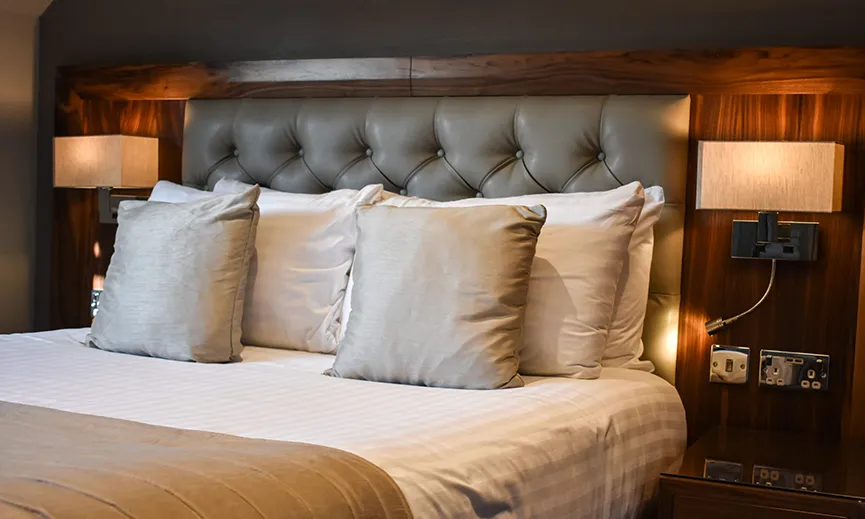
Unlock new revenue: How accommodation can boost your pub business

Does customer loyalty even exist?

What is loyalty?

The top 5 latest Order & Pay features to help you reduce overhead and boost efficiency

GO Technology: Hotels and consumers – Guest expectations and how to meet them
Sustainability has been a hot topic for the hospitality industry in recent years and for good reason. With the industry accounting for 15% of our country’s greenhouse gas emissions, it’s essential that hoteliers take action to show accountability, build consumer trust and make a positive change for our environment.
The industry has been set a collective target of net zero carbon emissions by 2050, with a complete elimination of single-use packaging and a 50% reduction in food waste. Here, we discuss 5 ways in which your hotel can reach these targets to become more sustainable and save you money.
The average hotel room uses between 60,000 and 120,000 litres of water each year and with over 10,000 hotels in this country, the impact is huge.
The World Hospitality Sustainability Alliance has launched a Hotel Water Measurement Initiative methodology and calculator, enabling hoteliers to more accurately measure their water usage per room per day, benchmark their performance and set targets to reduce it.
For tangible ways to reduce water usage, hoteliers should consider each area of the hotel:
Kitchens
Laundry
Rooms
Leaks can add thousands of litres of water to your usage every week, so proper maintenance in rooms, bathrooms, pools and kitchens will be essential for your hotel to save water.
Focussing on seasonal British produce within hotel menus will reduce the need for air miles, but hotels can drive their food emissions down even further by going ‘hyper-local’ with the food products they use.
According to government data, transporting food around the UK produces 109 million tonnes of CO2 annually; a huge 26% of our total greenhouse gas emissions.
Try to reduce UK food miles by focusing on sustainable local produce. Encourage chefs to seek out the best local producers in your area and showcase their products within your menus to delight guests, build meaningful relationships with your local community and reduce road emissions.
In one year, UK hotels use enough energy to power a staggering 45 million homes. Identifying where energy is being wasted, and gaining control over costs, will help hoteliers to facilitate the implementation of more sustainable practices. Methods can include:
The World Sustainable Hospitality Alliance has calculated that 18% of all world food waste is created by the hospitality industry, with £2.6 billion being lost to waste each year in the UK.
As hotels look to increase their sustainability and put a green foot forward, they must look to their kitchens to create positive change.
Zonal’s Purchase-to-Pay system alerts kitchen staff when stock is running low and gives real-time recommendations for re-ordering and menu planning based on individual requirements and guest behaviour.
The software automatically sends an order to suppliers for fulfilment, saving chefs precious time and streamlining kitchen operations. This process significantly reduces food waste and over-ordering, greatly cutting costs and helping the environment.
UK Hospitality has set a target to eliminate single-use packaging in the industry and with that will come a huge change in the way hotels provide gifts for their guests. With an estimated 200 million mini-plastic toiletries going to landfill every year, the industry must look to more sustainable alternatives.
Solid toiletries
Bars of soap, shampoo and conditioner in recyclable packaging are becoming more popular as an alternative to liquids and make nice eco-friendly gifts for guests to take away.
Bulk dispensers
Bulk dispensers in hotel bathrooms for shampoo, conditioner and body wash are perhaps the most effective way to go greener with toiletries. Dispensers can be filled with high-quality products and negate the use of individual toiletries saving time, money and the planet.
Toiletries on request
Hotels can eliminate single-use mini toiletries in rooms altogether with a simple message to guests that toiletries are available upon request. By setting out your hotel’s quest for sustainability, guests will be more likely to bring their own toiletries, helping to reduce your plastic waste.
The UK’s ambitious net zero target has brought the environment to the forefront of Hotelier’s business practices and will continue to dominate decision-making. With small changes and the implementation of technology, hoteliers can find the balance between a great customer experience and real sustainability.